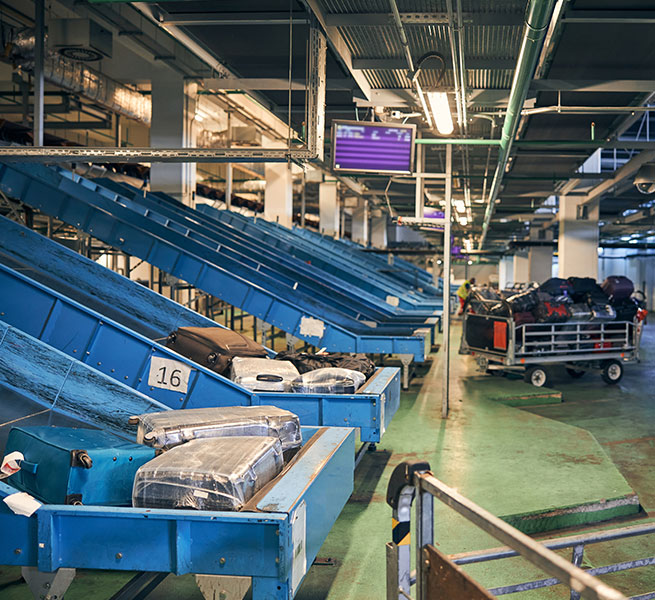Major focus for 2024 and beyond
The focus for the BIWG in 2024 will be the continued advancement of bag tracking and tagging, as well as exploring the use of robotics and autonomous methods of loading bags. Proof of Concepts are either underway or in the planning phase in all of those areas with a cross-section of members working collaboratively to advance how bags are handled in the future. The group also considers how new initiatives will impact the passenger and baggage workers with sustainability always top of mind.
Baggage Sustainability
Here at FTE, we believe that we must evolve industry discussions beyond next-generation aircraft, offset programmes and biofuel initiatives, and look at how every aspect of the industry can play an invaluable role in reducing the carbon footprint around the world. There is much we can do as an industry to reduce the environmental impact that travelling with baggage has on our planet, and the FTE BIWG will dedicate a lot of energy to discussing and helping our members find the best methods and approaches to ensure improvements in this realm are made as soon as possible by airports, airlines, ground handlers and their baggage suppliers.
Other Focus Areas:
- Advancing off-airport baggage collection, check-in, and delivery. Airports cannot quickly grow, and as passenger numbers increase, the off-airport processing of baggage becomes an attractive method to increase system capacity.
- Simplifying baggage infrastructure and processes at the airport. New technologies can simplify many complex processes, increasing system robustness and reducing maintenance costs.
- Unlocking opportunities presented by modern baggage messaging, which enables a new generation of coders and programming tools to be easily accessed.
- Creating new commercial models for new baggage approaches. Baggage is not about segregating bags by travel class and placing them on an aircraft. Baggage is a unique product with potential for service development and revenue opportunity.
- Robotics & Automation - Automation can help counter rising labour costs and provide a constant baggage flow, reducing peak demands.
Proof of Concepts (POCs) already underway within our Airport Lab Network:
Reclaim Optimisation
Baggage reclaims may seem simple, but why is it that often many are empty with 3 flights crowded around a single reclaim? Effective reclaim optimisation improves the passenger experience, can reduce infrastructure cost or enable more efficient resource usage. This proof of concept is implementing baggage reclaim optimisation for GTAA. Airport Labs partner Copenhagen Optimisation says that “We are excited to pilot demand-driven reclaim belt allocation benefiting passengers through a more accurate and balanced allocation – and benefiting GTAA through a fully automated solution with no need for human intervention.”
MOVING BAGGAGE BETWEEN THE US AND CANADA LEVERAGING COMPUTER VISION TECHNOLOGY
The POC will start with collecting images from the outside of the bag and storing them for use in tracking and damaged bag claims. The quality of the images, number of cameras and angles will all be tested. This initial phase will include Toronto Pearson and Fort Lauderdale airport with participation from Air Canada, Southwest, Cognex, Brock Solutions and Bags ID. Subsequent phases could include identifying a bag in Ft Lauderdale and then identifying the bag on arrival in Toronto.
TESTING Electronic BAG TAGS
The POC aims to trial electronic bag tags in a real airport environment that has various types of bag tag readers, ranging from traditional laser bar code readers, newer optical character recognition camera-based readers and the latest in remote video encoding.
In addition, the BIWG plans to perform a test of readability rates between the new electronic bag tags and the traditional paper tags for transfer bags, which tend to be lower due to the bag transitioning to its second or third flight.

